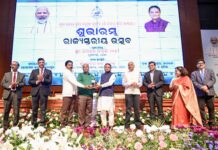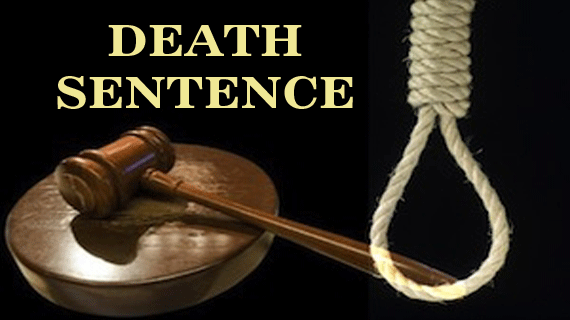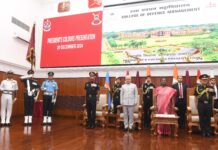By Our Correspondent
NEW DELHI:Asian Centre for Human Rights (ACHR) welcomed the recommendation of the National Human Rights Commission (NHRC) to the Ministry of Home Affairs (MHA) to commute the death sentence of four death row convicts i.e. Krishna Mochi, Nanhe Lal Mochi, Bir Kuer Paswan and Dharmendra Singh @ Dharu Singh who were convicted in the Bara massacre case of 13 February 1993 in light of the Supreme Court judgments on undue, unexplained and inordinate delay in execution due to pendency of mercy petitions. This is the first ever recommendation made by the NHRC on commutation of death sentences and ACHR described it as a historic step in the right direction.
The NHRC in its latest order has directed the MHA to make appropriate proposals to the President of India for commutation of death sentence and submit action taken report within three months.On 8 June 2001, the Sessions Judge, Gaya-cum-Designated Court under Terrorist and Disruptive Activities (Prevention) Act, 1987 found Krishna Mochi, Nanhe Lal Mochi, Bir Kuer Paswan and Dharmendra Singh alias Dharu Singh guilty and awarded the death sentence. On 15 April 2002, the Supreme Court confirmed their death sentence though Justice M B Shah had dissented against the award of death sentence.
Following the confirmation of the death sentence, these death row convicts filed mercy petitions with the President in 2003 and the prison authorities of Bihar forwarded their mercy petitions to the President of India on 3 March 2003. However, their mercy petitions were lost!
On 6th February 2014, ACHR filed a complaint with the NHRC on 6th February 2014 against the refusal and/or failure to consider the mercy petitions filed by the four death row convicts, Krishna Mochi, Nanhe Lal Mochi, Bir Kuer Paswan and Dharmendra Singh @ Dharu Singh who are currently lodged in District Jail, Bhagalpur. The NHRC issued notices to the MHA and the State Government of Bihar to submit their replies.After perusing the replies of the MHA and the State Government of Bihar, the NHRC in its substantive order.
“From a careful analysis of the facts and materials placed before the Commission it emerges that the four convicts in question had submitted their mercy petitions prior to 07.07.2004. This is clear from the admission of the Inspector General (Prisons and Correctional Services), Government of Bihar that the mercy petitions of the four convicts were forwarded to the Secretariat of Hon’ble President of India through the Home Department, Government of Bihar vide letter dated 07.07.2004.
But according to the Ministry of Home Affairs, Government of India and the Secretariat of the Hon’ble the President of India, the mercy petitions had not reached the Ministry of Home Affairs, Government of India or the Secretariat of the President of India. If the claim of the Inspector General (Prisons and Correctional Services), Bihar that the mercy petitions were sent to the President’s Secretariat through the Home Department (Special) Bihar vide letter dated 07.07.2004 is correct, where did they go and what happened to those petitions? The fact remains that the mercy petitions submitted by the four convicts prior to 07.07.2014 were not considered by the competent authority even after 12 years.
It is only after the intervention of the Commission that new mercy petitions dated 31.3.2013 along with the connected documents were sent to the Ministry of Home Affairs on 28.03.2016. Even these mercy petitions are still pending consideration by the competent authority.”
The NHRC further stated “In the case of Shatrughan Chauhan (supra), the death sentence of 15 death row convicts was converted to life imprisonment on the ground of delay in deciding their mercy petitions by periods ranging from 5-12 years.
In the case of Ajay Kumar Pal, the delay involved was 3 years and 10 months. From the above mentioned judgments of the Supreme Court, it is clear that Krishna Mochi, Nanhe Lal Mochi, Bir Kuer Paswan and Dharmendra Singh, who are death row convicts and who had submitted their mercy petitions prior to 07.07.2004 have a strong case to get their death sentences commuted to life imprisonment as their mercy petitions remained un-disposed off for more than 12 years and their death sentences were not executed for more than 12 years.
Even the new mercy petitions dated 31.3.2013, referred to in the letter dated 28.3.2016 of the Special Secretary (Law), Government of Bihar addressed to the Joint Secretary (Judicial), Ministry of Home Affairs, Government of India have not yet been disposed off, despite expiry of a period of three years and six months.”
In the light of these, the NHRC recommended to the Government of India to submit appropriate proposals to the Hon’ble President of India, in the light of the judgments of the Supreme Court referred above. Necessary action in this regard may be taken by the Union Home Ministry within three months.”





























